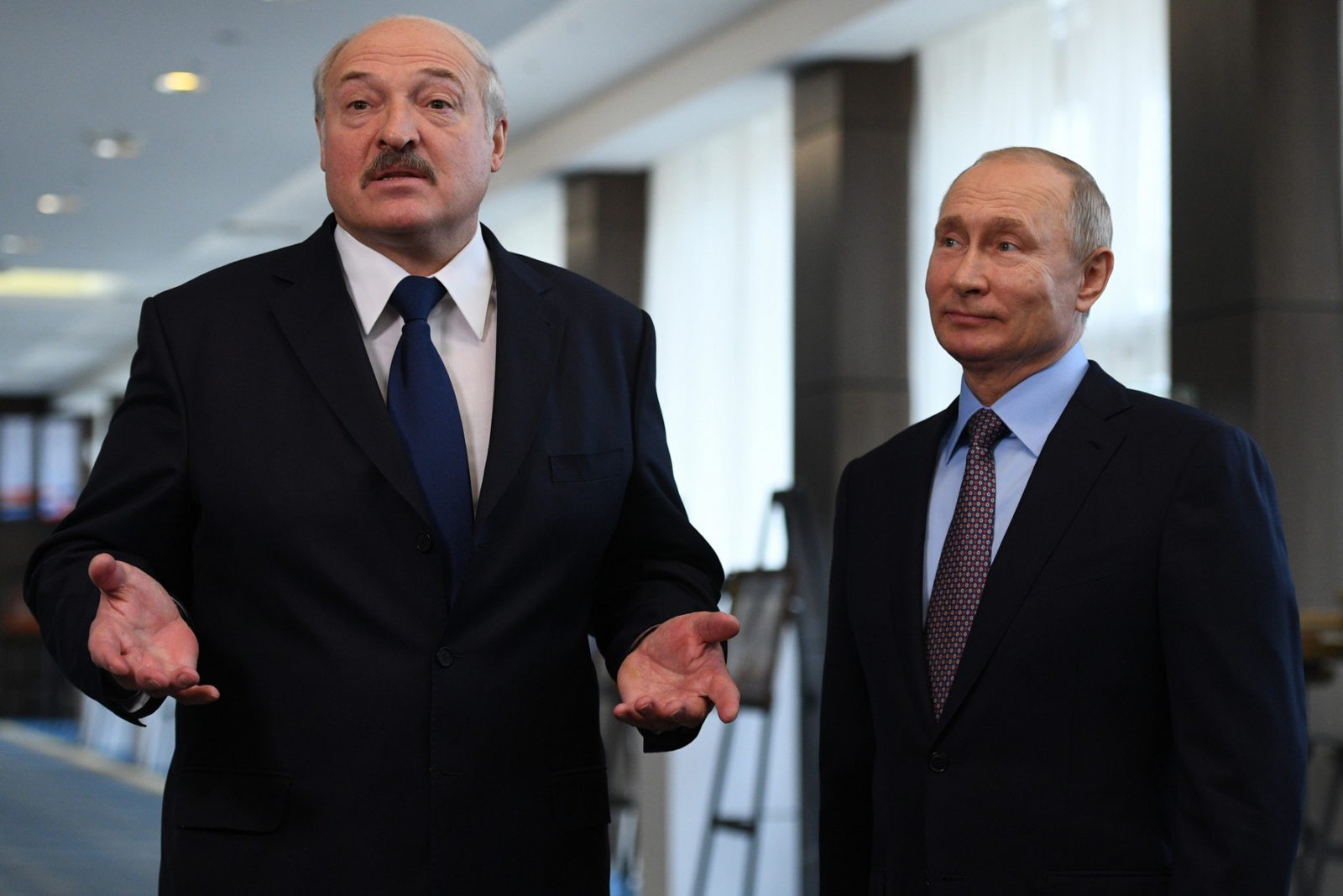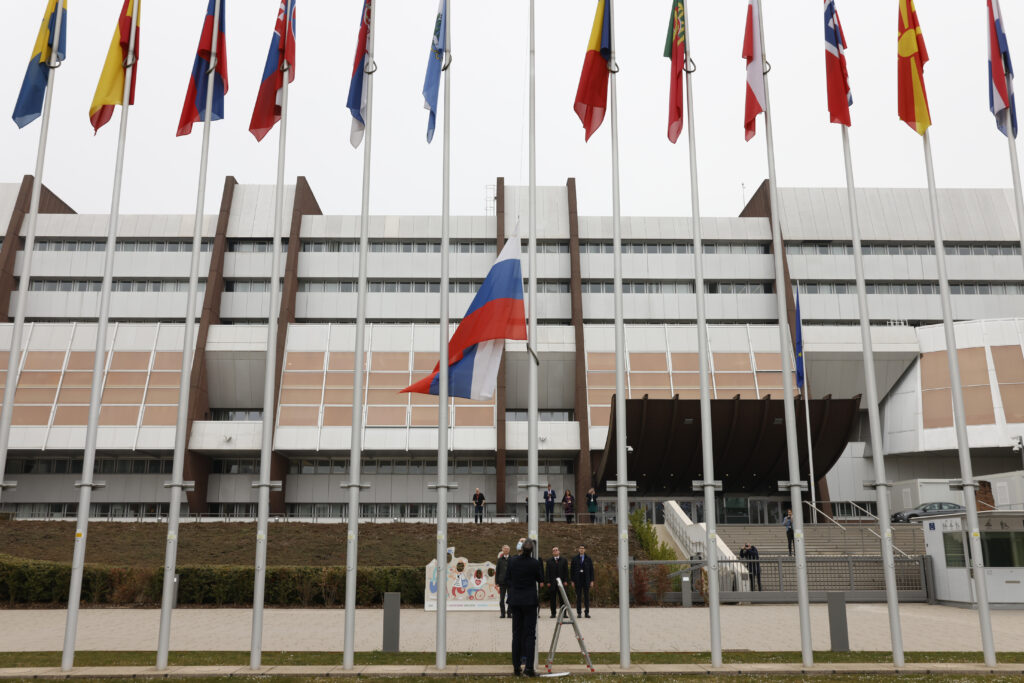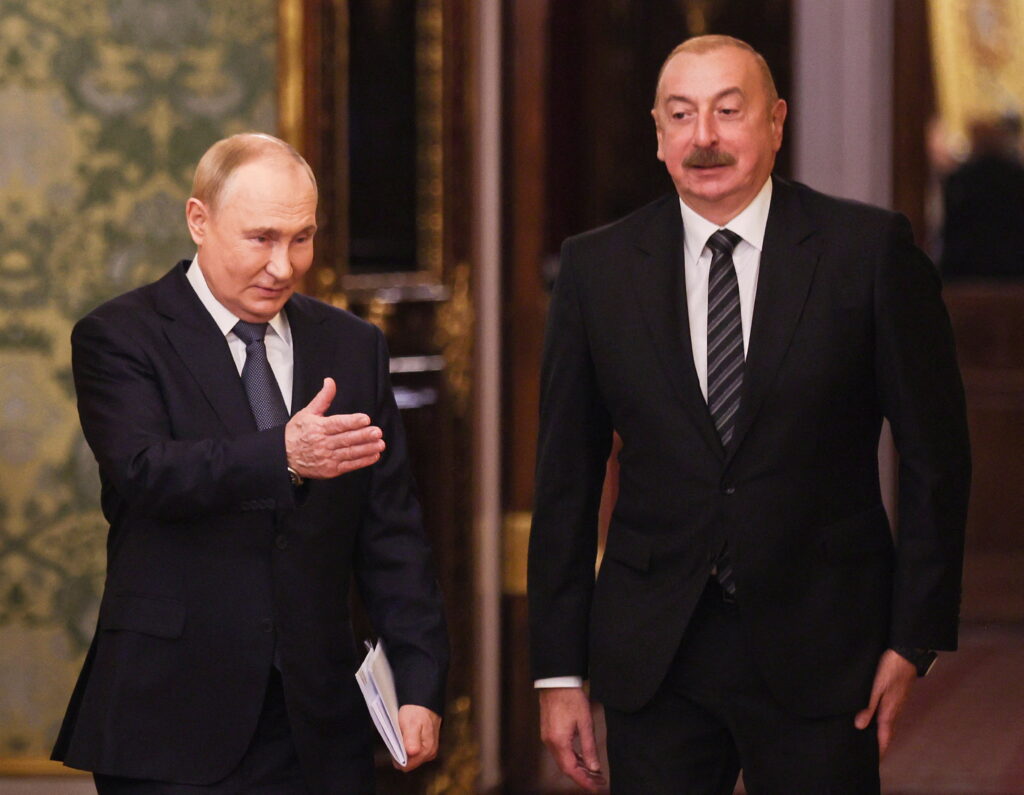The ever more frequent meetings between Vladimir Putin and Alexander Lukashenko over the course of 2018 did not correct ongoing and underlying bilateral disparities between Minsk and Moscow. And their February meeting in Sochi this year did not either. However, the Russia-Belarus Sochi talks did at least offer fresh hints at where relations are heading.
More Integration, Or Tired Rhetoric?
The key signal related to the meeting of the two presidents on 13–15 February was a statement from Lukashenko. It concerned the sovereignty of Belarus in the context of “deeper integration” with Russia. According to the Belarusian leader, sovereignty (understood as supremacy on one’s own territory) is “a holy icon” and “a sacred thing” for him. Independence, he distinguished, is “a relative concept,” since no country in the world is fully independent.
Lukashenko said the possibilities of further integration were dependent on the will of the peoples of the two countries. In his opinion, the leaders of Belarus and Russia are ready for unification while the people are not yet prepared. If the Belarusian and the Russian people are ready, the presidents will fulfil their will to unite.
These bold statements may sound radical to an unprepared listener. Yet, any observer familiar with Lukashenko’s communication style understands that the words about “readiness to unite” are a traditional formula for the Belarusian leader. The formula allows him to position himself as an active supporter of the idea to strengthen the Belarusian-Russian union. At the same time, he can remain at a safe distance from any practical obligations. This time, the Belarusian leader seemed to be a more active supporter of “deeper integration” than Vladimir Putin himself. However, he presented the issue of “unification” as dependent on “the will of the people”. The latter could be expressed at a referendum. But Lukashenko knows the Russian authorities will not organise any referendum right now, given the declining confidence towards the Russian authorities. Especially on a topic like unifying with Belarus, which many Russians see as a recipient of Russia’s subsidies.
So if there is anything new in Lukashenko’s words, it is his changed view on the value of sovereignty. Belarusian commentators recalled his statements made in 2003, 2009 and even 2013. On those occasions he said that sovereignty was not a holy icon to pray to, but some sovereignty can be sacrificed for the sake of a better life for people. However, his February 2019 words about the sanctity of sovereignty in the context of “a holy icon” show a change of mood.
Oil and Gas Versus Sovereignty
Of course, the traditional formula used by Lukashenko would not have attracted much interest. Except it came after high-ranking Russian officials spoke about the Kremlin’s loss of confidence in Belarus (December 2018). Others stressed the need of deeper integration as a prerequisite for resolving differences. An attempt by the Belarusian party to raise a public scandal in response at the EEU summit in St. Petersburg on 6 December ended in failure. (The goal was to offset losses suffered from a Russian tax manoeuvre.) The Kremlin turned out to be ready for it and, in response, hiked tax rates, suggesting Minsk give up part of its sovereignty.
In their public speeches, the Russian officials described this deal on “deeper integration” in a very different way. In December 2018, the discussion focused on developing common policies in areas of taxation, excise duties, industry, economy, and monetary policy, on a possible introduction of a single currency, and the creation of supranational bodies (e.g. a court, a parliament etc.) under the documents on the Union State. Later on, Foreign Minister Sergei Lavrov admitted that, given the enormous differences between the two countries in the conditions and models of development, the establishment of supranational bodies is out of the question. However, the Secretary of State of the Union State Grigory Rapota as well as the Russian Ambassador to Belarus Mikhail Babich later reiterated that the issue was both to develop common policies and to establish supranational bodies.
Notably, the “deeper integration” joint working group established following the presidents’ December decisions, and headed by the countries’ economic ministers, has come into being and has been working separately. Russian and Belarusian group members are independently developing recommendations for the development of the Union State. Without involving the State Secretariat of the Union State. Only once the positions of the parties have been articulated, can the first joint meeting of the joint working group be held.
Most illustrative of the “deeper integration” project is the position adopted by the Ambassador of Belarus to Russia Vladimir Semashko. (He supervised the fuel and energy sector and industry in general in the Belarusian government for many years.) And he drew attention to the fact that, given the huge difference in the structure of the economies of Belarus and Russia, it would be possible to come up with specific solutions for the unification of taxes, customs and other policies after at least 1.5–2 years of intense joint work.
Presidential and parliamentary elections are to be held in Belarus in exactly in 1.5 or 2 years. The government may achieve a new loan agreement with the International Monetary Fund by then. So any specific decisions on “deeper integration” might not be adopted at all.
In this sense, in terms of mutual relations in the energy sector, the Sochi meeting held in February 2019 only fossilised the new status quo. Within its framework, Belarus does not receive any compensation for losses suffered due to Russia’s tax manoeuvre. It remains without access to supplies of Russian dark oil products. But it does not make political concessions to the Kremlin when it comes to “deeper integration”. This state of affairs is quite in line with the national interests of Belarus, where structural reforms have long been necessary. But it also tallies with the interests of the Belarusian political class. Any renunciation of sovereignty in favour of the Kremlin means a more certain and rapid loss of power. That is a higher downside comapared to any oil and gas benefits. So the situation in this particular area is being “frozen” until at least the end of 2019.
Success With Secondary Issues
A question arises, then: what were the leaders of the two countries doing for three days in a row? What did they spend their time and taxpayers’ money on?
The exchange of sovereignty for oil and gas benefits is not the only issue in the Belarusian-Russian relations. There is also the issue of admission of Belarusian meat and dairy products to the Russian market. Relevant negotiations were held on 13 February in Moscow at the ministerial level. There is a question about letting foreign citizens cross the Belarusian-Russian border. That should have been resolved now, at least for the period of the 2019 European Games in Belarus. (The corresponding document was signed by Vladimir Putin on 21 February). There is also a question of smuggling European sanctioned products to the Russian market. The Belarusian security forces are taking action after requests from their Russian counterparts. On 19 February, it was revealed that law enforcement agencies became interested in the main figure in the “re-export issue”. That is, the Belarusian company Beltamozhservice. There will likely more news about the measures taken to combat smuggled tobacco and alcohol from Belarus to Russia. Russian negotiators highlighted the issue.
These and other “secondary” (but pressing) issues in bilateral relations seem to have been resolved quite successfully. That is, in the sense that the Belarusian party committed to real measures. In response, Minsk expects more stable access to the Russian market for its food products. It also hopes for greater access to the Russian freight market for Belarusian companies. In January 2019, Lukashenko named these two issues as priorities.
Soft Power, Hard Interests
Finally, the Sochi negotiations also covered the issues of humanitarian cooperation. This was actively advocated by Mikhail Babich, the Ambassador and Special Representative of the President of the Russian Federation. He is not only trying to mobilise the Kremlin to take more active actions in this field; he is also taking actions himself.
For example, his steps taken at Christmas did not get the well-deserved public attention. Lukashenko, in the presence of Patriarchal Exarch Pavel, said in Minsk that the Belarusians would never walk “under the whip” (hinting at the Russian whip). Babich, meanwhile, visited one of the main Belarusian Orthodox shrines, the Zhirovichsky Monastery, and one of the most powerful economic centres of the church, St. Elizabeth Monastery. Lukashenko himself has never visited any of these two sites. In contrast, Babich did not only visit them but promised support. He also used his visit to express harsh words about the developments in Ukrainian Orthodoxy.
The Russian Ambassador is also promoting humanitarian issues at the inter-state level. On his initiative, a second round of talks took place in Sochi on 15 February. Ministers of education, science and culture took part. As a result, formal documents and decisions were signed. However, the most interesting things in humanitarian cooperation are yet to come.
Babich is promoting a unified information security agenda as part of the Belarusian-Russian integration. Yet Lukashenko has announced measures to split the Belarusian and Russian TV advertising markets. On 31 January, during the meeting on new approaches to information security in the Republic of Belarus, two measures were announced. One, the creation of a research institution to track the information space. Two, the establishment of a company to measure television viewing habits among the Belarusian audience.
The first measure has already arrived with the creation of the Belarusian Institute for Strategic Studies, answerable to the President of Belarus. The second measure is on its way. After this measure, the Belarusian TV advertising market will no longer be part of the Russian market. It will get to create its own advertising seller to negotiate the placement of ads on Belarusian TV channels with foreign companies and multinational corporations.
Belarusian leaders are getting ready to “separate” their information space from the Russian one and, these steps have been carried out without much hype, focusing on a long-term rather than immediate outcome. Even if all the pressing issues get resolved, the effect of creating a Belarusian TV advertising market will not be visible until a few years’ time.
In other words, the priority of “separating” the Belarusian information space from the Russian one is seen as strategic for Minsk. This means that stepping up humanitarian cooperation, as promoted by Babich with the Kremlin’s support, will sooner or later clash with the information policy pursued by the Belarusian leaders, who rely on their own understanding of national interests as well as their own group interests.
Carrying On With Cooler Heads
In short, the results of the Sochi negotiations turned out as expected. The parties reached a deadlock on the main issues. They found an understanding on secondary matters. They “deepened the integration” in the humanitarian sphere without extra costs. Of course, these results seem a temporary compromise. The incompatibility of the two countries’ national interests and the group interests of their elites could lead to medium term violations.
However, one outcome of the Sochi negotiations is positive. The parties were able to acknowledge their inability to reach an agreement. They and did so in a civilised, calm manner. Lukashenko no longer seeks a positive result in negotiations with the Russian leadership by resorting to public escalation and fracas. Putin and his government realised that the Belarusian leaders would not commit political suicide by surrendering sovereignty for the sake of the Russian oil and gas rent. As a result, the Belarusian-Russian relations may become far less spectacular, but gain a more pragmatic dimension. And that will be good for both countries.










